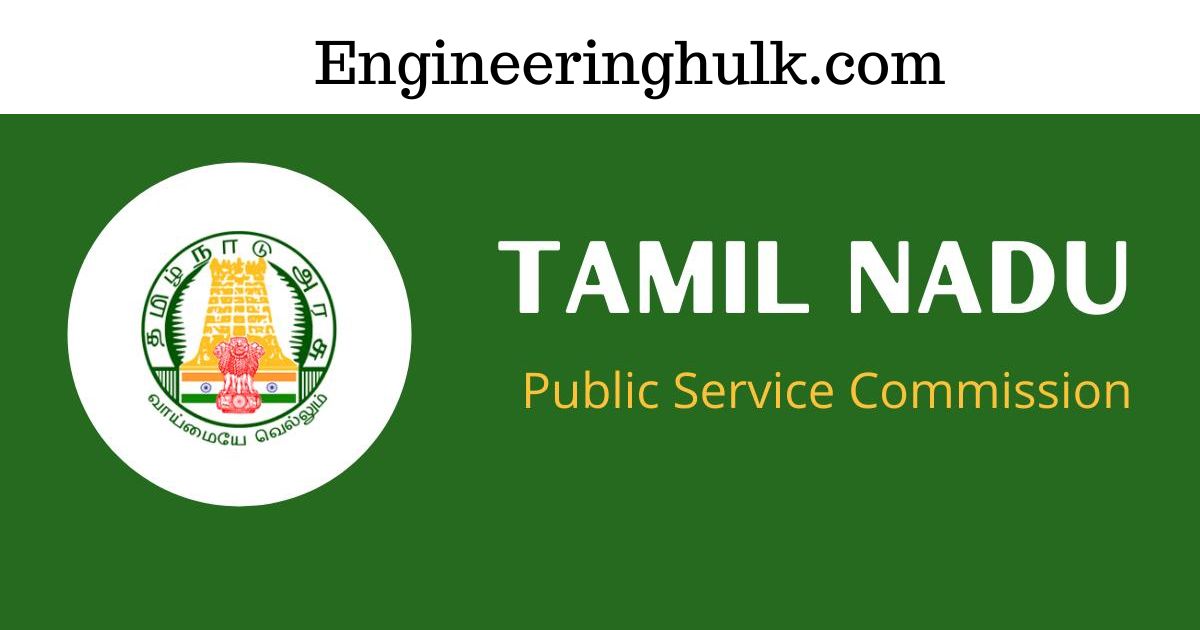Table of Contents
Introduction:
In the ever-evolving world of entrepreneurship, startups are constantly seeking ways to stand out from the competition and make a lasting impact. Startups are all about innovation, disruption, and creating something new. However, as a startup founder, it can be challenging to find the right words to describe your business. Choosing the right adjectives can make all the difference in attracting investors, customers, and employees.
Starting a business is an exciting journey that requires a lot of hard work and dedication. One of the most important aspects of creating a successful startup is finding the right words to describe your business. The words you choose to use can make all the difference in how your business is perceived by potential investors, customers, and employees.
Defining Startup Adjectives:
Startup adjectives are descriptive words used to encapsulate the unique qualities, characteristics, and values associated with a startup. These carefully chosen adjectives serve as a means to communicate the essence and positioning of a business to its target audience. Startup adjectives act as linguistic tools that evoke emotions, shape perceptions, and differentiate a brand from its competitors.
The Importance of Startup Adjectives:
2.1 Building Brand Identity:
Startup adjectives play a vital role in shaping a brand’s identity. By selecting adjectives that align with the brand’s values and personality, startups can establish a distinct and recognizable identity. Whether it’s being described as innovative, disruptive, or customer-centric, adjectives help create a cohesive and memorable brand image.
2.2 Conveying Value Proposition:
Adjectives enable startups to articulate their unique value propositions. By carefully choosing descriptive words that highlight the benefits, qualities, or features of their products or services, startups can communicate what sets them apart from competitors. Adjectives like efficient, sustainable, or personalized can emphasize the value customers can expect from engaging with the startup.
2.3 Connecting with the Target Audience:
Startup adjectives facilitate an emotional connection with the target audience. By selecting adjectives that evoke specific emotions, startups can elicit a desired response from their customers. Adjectives such as inspiring, empowering, or inclusive resonate with audiences on a deeper level, fostering loyalty and engagement.
Why is Startup Adjectives Important?
1. Creating an Emotional Connection:
Startup adjectives play a crucial role in establishing an emotional connection with your target audience. By carefully selecting adjectives that align with your brand’s values and mission, you can evoke specific emotions that resonate with potential customers. For example, words like “inspiring,” “empowering,” or “innovative” can ignite curiosity and excitement, making your business more appealing and memorable.
2. Defining your Unique Selling Proposition:
In a crowded marketplace, it is essential to differentiate your startup from competitors. Adjectives provide a powerful means to define and communicate your unique selling proposition (USP). By using adjectives that highlight the distinctive features, qualities, or benefits of your product or service, you can position your startup as the go-to solution for your target audience. For instance, words such as “personalized,” “exquisite,” or “cutting-edge” can emphasize the uniqueness and value your startup brings to the table.
3. Enhancing Brand Identity:
Startups often strive to establish a strong brand identity from the outset. Adjectives play a vital role in shaping how your target audience perceives and connects with your brand. Consistently using descriptive language that reflects your brand’s personality, values, and tone can help build a recognizable and relatable brand identity. Whether you aim to be “innovative,” “friendly,” “professional,” or “sustainable,” aligning your adjectives with your brand image strengthens customer trust and loyalty.
4. Improving Search Engine Optimization (SEO):
In the digital age, search engine visibility is crucial for startup success. Incorporating relevant adjectives into your website content, meta descriptions, and title tags can significantly impact your search engine optimization (SEO) efforts. Strategic use of adjectives can help optimize your website for specific keywords, enhance the readability of your content, and improve your search rankings. This, in turn, increases your visibility and attracts more organic traffic to your startup’s website.
5. Crafting Memorable Marketing Messages:
Effective marketing is all about leaving a lasting impression on your target audience. Adjectives serve as potent tools for crafting memorable marketing messages. By selecting vivid and attention-grabbing adjectives, you can make your marketing materials stand out from the competition. Whether it’s a catchy slogan, a compelling call-to-action, or a persuasive headline, well-chosen adjectives can make your startup’s marketing messages more engaging, memorable, and shareable.
What to Avoid: Words That Can Hurt Your Business
1. Innovative:
The adjective “innovative” is commonly associated with startups, as they often strive to introduce groundbreaking ideas or disrupt existing markets. By using this adjective, you convey to your audience that your company is at the forefront of industry trends, continuously seeking fresh and inventive solutions.
Example: “XYZ Inc. is an innovative startup revolutionizing the way we interact with artificial intelligence.”
2. Disruptive:
Startups that challenge traditional business models or introduce game-changing products are often described as “disruptive.” This adjective suggests that your company is shaking up the industry and offering a unique value proposition that sets you apart from established competitors.
Example: “ABC Tech is a disruptive startup transforming the transportation industry with its electric, autonomous vehicles.”
3. Sustainable:
In today’s environmentally conscious world, startups that prioritize sustainability are gaining traction. Using the adjective “sustainable” signals that your company is committed to reducing its carbon footprint, promoting eco-friendly practices, and delivering long-term value without compromising future generations.
Example: “EcoGreen Solutions is a sustainable startup specializing in renewable energy technologies for a greener tomorrow.”
4. Agile:
Startups are known for their ability to quickly adapt and respond to changing market conditions. The term “agile” implies that your company is nimble, flexible, and capable of embracing new opportunities or pivoting strategies when necessary.
Example: “Startup Ventures is an agile company that rapidly adjusts its business approach to meet the evolving needs of its clients.”
5. Customer-
Centric: Building strong relationships with customers is crucial for startups. Describing your business as “customer-centric” showcases your commitment to understanding and meeting the needs of your target audience, providing exceptional service, and fostering loyalty.
Example: “At Stellar Startups, we pride ourselves on being a customer-centric company, delivering personalized solutions tailored to our client’s unique requirements.”
6. Transparent:
Trust is a vital factor in the success of any startup. By highlighting transparency as an adjective, you assure your audience that your company operates with openness, honesty, and integrity, thereby establishing a strong foundation for long-term relationships.
Example: “Our transparent pricing policy is one of the key reasons why customers choose XYZ Startup for their financial services.”
7. Cutting-Edge:
Startups often leverage emerging technologies and innovative approaches. The term “cutting-edge” suggests that your company is at the forefront of advancements in your industry, continuously seeking new ways to push boundaries and deliver state-of-the-art solutions.
Example: “TechWave is a cutting-edge startup that pioneers the development of AI-powered virtual assistants for seamless productivity.”
8. Empowering:
Startups that aim to empower their customers through their products or services can use this adjective to communicate their commitment to enabling personal growth, education, or independence.
Example: “Empowerment Solutions is a startup that provides intuitive software tools empowering small businesses to streamline their operations and achieve success.”
Here are some examples of startups and the adjectives they use to describe their brand identity:
1. Tesla:
Adjectives: Innovative, Revolutionary, Sustainable, Cutting-edge, Visionary
2. Airbnb:
Adjectives: Unique, Authentic, Memorable, Local, Experiential
3. Dropbox:
Adjectives: Seamless, Reliable, Secure, Effortless, User-friendly
4. Patagonia:
Adjectives: Ethical, Sustainable, Outdoor, Adventure-driven, Environmentally-conscious
5. Slack:
Adjectives: Collaborative, Productive, Efficient, Organized, Connected
6. Warby Parker:
Adjectives: Affordable, Stylish, Trendsetting, Disruptive, Socially-conscious
7. HelloFresh:
Adjectives: Convenient, Healthy, Fresh, Time-saving, Delicious
8. Uber:
Adjectives: Convenient, Reliable, On-demand, Seamless, Disruptive
9. Everlane:
Adjectives: Transparent, Ethical, Minimalist, High-quality, Timeless
10. Glossier:
Adjectives: Minimalist, Natural, Effortless, Authentic, Inclusive
These examples illustrate how startups use adjectives to shape their brand identities and convey specific qualities and values that resonate with their target audience. Remember, when selecting adjectives for your startup, ensure they align with your unique value proposition and reflect your brand’s personality and mission.
What to Avoid: Words That Can Hurt Your Business
1. Negative Superlatives:
Avoid using negative superlatives when describing your products or services. Words like “worst,” “terrible,” or “awful” can immediately create a negative impression in the minds of potential customers. Instead, focus on highlighting the positive aspects and benefits of your offerings.
Example: Instead of saying, “Our competitor’s customer service is the worst,” emphasize, “Our customer service is exceptional, providing prompt and personalized support.”
2. Empty Buzzwords:
Buzzwords may seem enticing, but relying on them excessively can dilute your message and make your brand appear insincere or vague. Empty phrases like “revolutionary,” “groundbreaking,” or “cutting-edge” should be avoided unless you have substantial evidence to back up these claims.
Example: Instead of using generic buzzwords, highlight specific features or achievements that genuinely differentiate your business from competitors.
3. Jargon and Acronyms:
While industry-specific jargon and acronyms can be useful within your niche, overusing them in your marketing materials can confuse and alienate potential customers. Aim for clear and concise language that resonates with a broader audience and avoids unnecessary technical terms.
Example: Instead of using complex jargon, simplify your message to make it more accessible to a wider range of customers.
4. Exaggerations and Hyperbole:
Overstating your products’ capabilities or making unrealistic promises can lead to disappointed customers and damage your reputation. Be honest and transparent about what you can deliver to build trust and long-term relationships with your audience.
Example: Instead of claiming your product can “solve all problems instantly,” focus on its specific benefits and how it can address common pain points effectively.
5. Offensive or Insensitive Language:
It should go without saying, but offensive or insensitive language has no place in your business communications. Avoid using derogatory terms, offensive slurs, or language that may marginalize or offend any group of people.
Example: Ensure that your messaging is inclusive and respectful, promoting a welcoming environment for all customers.
6. Confusing or Vague Terms:
Clear communication is essential for effective marketing. Avoid using confusing or vague terms that may leave your audience uncertain about your offerings. Ambiguity can lead to mistrust and lost opportunities.
Example: Instead of using phrases like “affordable pricing,” provide specific details or price ranges to give potential customers a better understanding of what to expect.
7. Legal Disclaimers and Fine Print:
While it’s crucial to protect your business legally, excessive use of legal disclaimers and the fine print can create a sense of distrust. Find a balance between necessary disclosures and maintaining a transparent and customer-centric approach.
Example: Make sure your legal terms and conditions are easily accessible and written in plain language, allowing customers to understand their rights and responsibilities.
Also, read craigslist wilmington nc































